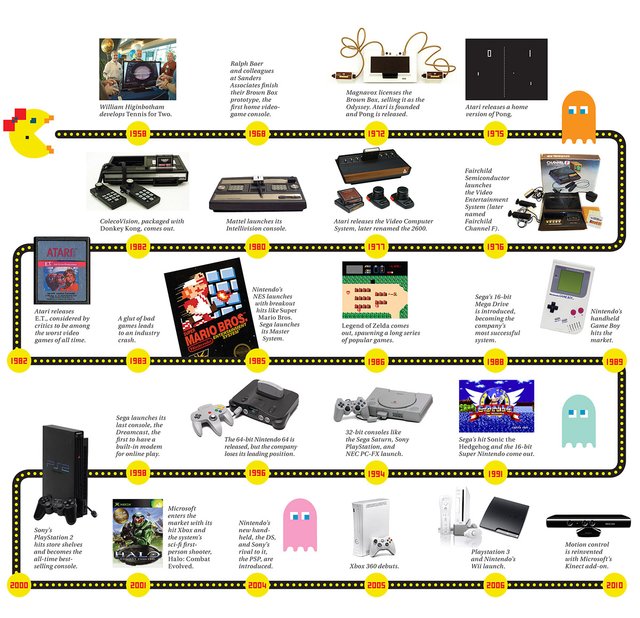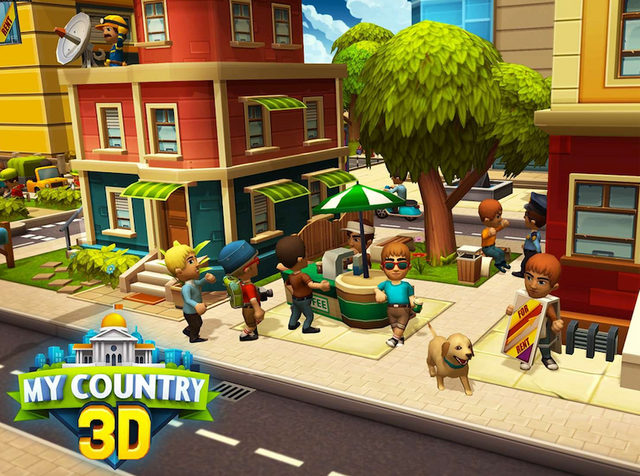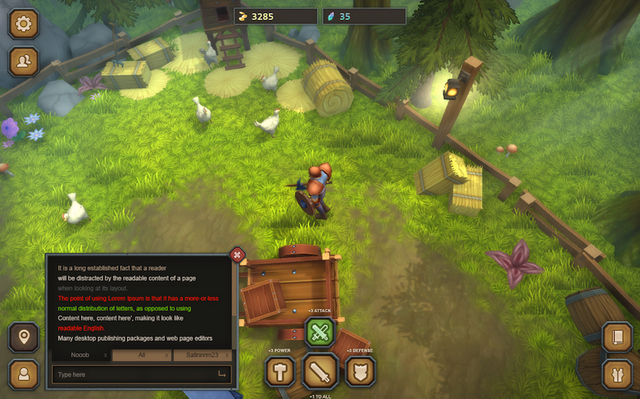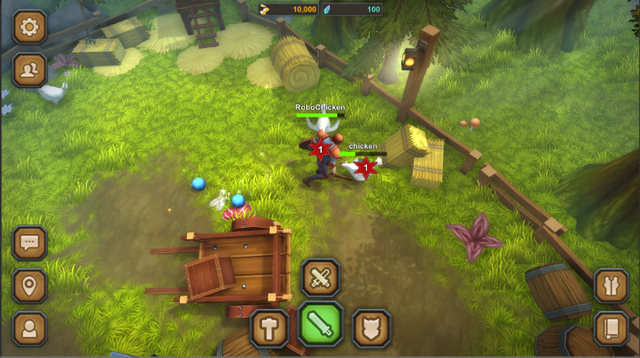How we will use blockchain to dramatically change the gaming industry?
Just a small intro
I got my first PC at 1994, it was a 386DX, that had problems running even Doom, because there was not enough RAM. I was dreaming to become a game developer someday, but for sure I've become a gamer primary, my first games were placed on 3.5"floppy disks, afterwards on CDs, it was pretty cool time, and I've manage to spend more than 10000 hours playing games for sure.

Gaming industry are taking more than 40 years from the time, main shift appear after we have got Atari in 1977, from this time there was a long period, but the last milestone that we met, it is shift from distribution of physical CD's to a 100% downloadable content and Free-to-Play game mechanics as a leading power of gaming industry.
In 2011 I have finally opened my game development studio, starting my career with a mobile free-to-play games.
Gaming now
For the last 7 years the modern mobile and computer gaming industry working like this: the person chooses the game and downloads it from the market, all this has been working since the time Apple Appstore / Google Play appeared as well as more than 100 of their Western and Chinese counterparts under the android platform on mobile devices and Steam for PC / Mac / Linux

Leading business model appear to be free to play games, and the 95% of mobile earnings are going from those type of games.
How it works?
The user enters any marketplace and downloads the game, inside the game there are in-game purchases and advertising, a certain percentage of users are converted to paying users and this percentage is statistically quite accurate. On a large numbers of users we met a quite ordinary sales funnel which is simply expanded at each stage. We as a game developers, immediately appreciated this approach, and began to develop games as follows:
- Identify the most profitable niches.
- understand where the player stopped and users do not move on, thereby increasing the conversion and, accordingly, earnings.
- using the most successful game loops/cycles and game moments for the conversion of non-paying users to paying users.
- Calculate where to push the player and how to give him a random order (yes, random in games are always plays along to the player to give what he needs on the one hand, and on the other hand to provoke the purchase).
- conduct another hundred, another a / b tests, for maximum player retention and profit.
- produce clones of successful games and mechanics.
- check the game immediately on thousands of users.

Market size
At the moment, the games are $ 108.9 billion in profits for 2017, of which $ 47.1 billion are mobile games alone, and last year the gaming market was $ 99.6 billion.

It would seem that the industry is growing and everything is fine, but not everything is so simple. The volume of the market is increasing and more people are finding a hobby in games, rather than in more marginal occupations - that is good, the availability of games increases the interest in the gaming industry, as for game developers it is certainly very nice, but unfortunately everything is not as smooth as we imagine.
We know our players better than they know themselves
Our world consists of the same people as us, before whom, we - game developers taking zero responsibility. We know our players better than they know themselves. We know their strengths and weaknesses, which leads to a rather substantial imbalance of monetisation mechanics in general, we use the data to provide personalised promotions and discounts in time, knowing where and when to take a profit from a particular player, all of which are deposited in pockets of developers and advertisers, almost never returning to the players back as any virtual values that could be exchanged, that is, yes, you understood correctly, 100+ billion dollars settles in pockets of developers and intermediaries, with no chance of positive return.
What are the disadvantages we see in this approach:
- for several years we see the same titles and games in the top grossing charts, not because they are always the best, but simply because they earn more and allow to redinvest their money to purchase more traffic and motivate core users to attract the new ones.
- stopping playing, a person loses time and money that he spent, receiving in exchange a very short-term momentary joy.
- the games become like casinos, alcohol and tobacco industries, where profit and our ability to use human weaknesses, play on addictions and excitement.
- Anything can be created from the air just like the in-game currency and literally don't have any value.
- The business model of the marketplace prohibits the transfer and use of in-game currency outside the game.

Some games in the tops hang for years, not because they are better than others, and then that they have the most money and traffic, money is returned to traffic, traffic is converted into money.
What about eSports?
ESports (hey International Dota2), which should have become a fair competition with value of skills in competitive games, is now, in fact, a roulette where the most lucky of the talented receive sponsorship and any bonuses, the remaining 99% are left out. There is a very nice movie about this, shot by Valve, I also participated in competitions and roughly imagine the pressure that comes from all sides on the part of the family and society, which in the end, you can see in the video, a very revealing video where simple guys like us and you, chasing a dream get nothing.
Society is already beginning to understand the problem
*Roger McNamee, a famous early investor in Google and Facebook, says he regrets helping to create today's internet giants because they are hacking our brains to sell more ads, said this:
Like gambling, nicotine, alcohol or heroin, Facebook and Google — most importantly through its YouTube subsidiary — produce short-term happiness with serious negative consequences in the long term.
... the big Internet companies know more about you than you know about yourself, which gives them huge power to influence you, to persuade you to do things that serve their economic interests. Facebook, Google and others compete for each consumer’s attention, reinforcing biases and reducing the diversity of ideas to which each is exposed. The degree of harm grows over time.
... The fault lies with advertising business models that drive companies to maximize attention at all costs, leading to ever more aggressive brain hacking
Source:
www.businessinsider.com/famous-facebook-and-google-investor-condemns-brain-hacking-2017-8
Another guy, who previously worked at Google. Tristan Harris also have a interesting thoughts.
Harris previously worked at Google as a so-called Design Ethicist, where he was tasked with helping the company keep ethics in mind as it created products. Today he runs the non-profit Time Well Spent, which hopes to "stop technology platforms from hijacking our minds, and to start putting our best interests first," it says. Harris has been crisscrossing the country, giving speeches and conducting media interviews to raise the warning flag. McNamee has joined forces with Harris to try and raise public awareness on the issue.
Check his homepage, it is really interesting: http://www.timewellspent.io/eldraftlearn/
What can be changed?
We, as game developers with considerable experience, have decided that it is possible to create value for users by creating an entirely ecosystem and a platform where games will be published. Platform would be financed by crowd-investments, with deflate economy tokens, platform where players' time and skills can be assessed through an open economy where players can manage their resources and exchange them by real proportion between the time spent in the game.
For example, if player one value their time less, he can grind and earn some money, player two who value their time more, can win some time purchasing some assets from player one with tokens - this would allow players to exchange resources between each other without any restrictions. We came to the conclusion that this could be an interesting idea.
Plunged into this topic more, we realised that this is not just some ephemeral idea, but it is solution to solve real problem. Imagine that your 10,000 hours of play are not lost just as it happens to millions of us every day, but they would be somehow as a real value, that is, the game economy would give you and millions of other people the opportunity to bring, maybe virtual , but the benefit to other people, having received something real in return.
Our prototype of virtual things auction:

Our Solution
Initially, we as a game developers with 6 years experience in creating cross-platform games and marketplaces, as well as games for Disney, Game-Insight, Arcanestudios, NintendoUSA - were doing a mobile game, and getting involved in solving this problem, we understood that the competition in this this area will not be simple, and we need to make a high-quality platform and a very strong title (game) in which there will be both an e-sports component and an ordinary economic one.
Here, in fact, the case helped us, because before we understood this problem, we were just making a game. Even before this idea, we started to make a game and took a very popular setting of the Runescape game, in which there remained a large audience, but which some time ago was pretty spoiled. The audience of the game represents 250M accounts, this is recorded in the [Guinness Book of World Records] (http://www.guinnessworldrecords.com/world-records/most-prolifically-updated-mmorpg), with a large audience of the game people of 27+ years, we also spent a lot of the time in Runescape by the ourselves and we know where the developers have failed and this information is open and the Runescape developer Jagex even took a video about the history of the game, which openly indicated the problem points in the game's history.
We also have quite a lot of experience in game development.
Games in the creation of which we participated (on top positions):

Screenshots and videos from the prototype of our game, which we did in 9 days:



Nevertheless, Runescape, on the basis of which we make our game, remains popular even now. Here is a comparison with World of Warcraft:

Of course, this problem was really hard to solve previously, taking into account the fact that we are familiar with the blockchain since 2011. Now we understand that the technology and trust are enough to start this initiative, besides, we realised that the blockchain will help us solve several problems:
- the ability to turn standard mechanics as a grind into gaming income (as an alternative to virtual Proof of Work).
- do so that tokens and in-game things do not depreciate to 0 because there is no loss of interest when the player simply stops playing.
- Ensure the low cost of transactions and the absence of fraud.
- give developers the opportunity to raise funds for their projects, for new games with a new gaming economy, where the developer earns through transactions and in-game purchases.
The mechanics of the work of the token inside the game:

What do we have at the moment?
- We gathered the our team, and getting new people in a team, we got 10 very experienced people as developers, artist and management. Also we will expand the team, so if you are interested just sent your CV to [email protected]
- We made prototype of the game and we have very large codebase for marketplace and our own framework built on Unity3d for the successful game production.
- We have created website https://arenaplay.io and Whitepaper
- We have created theme on bitcointalk.com, we have got a lot of positive feedback and 40 registrations on website without any marketing
- We have made few posts about this idea [here they are] https://medium.com/@vitalyvishnevsky/how-we-will-use-blockchain-to-dramatically-change-the-gaming-industry-8c5e0b9ff74a and also we have made a video
- Also I recently performed at Summer Cyber-Fund MeetUp # 9 with a theme
New opportunities in the market of mobile and computer games with the use of blockchain
Also, we received many positive reviews and feedback both at the MeetUp and at the forums, we are glad that people hear us and give interesting tips and suggestions, it helps us to improve our idea and product.
What are your next plans?
- We are getting companies and developers who are interested in this platform (three quite large companies have already expressed a direct interest in making the game exactly for the platform)
- we are preparing to start 0 stage of crowd-funding
- we plan to continue platform and game development.
The one important thing that everything will be published under the open source, thus we want to give the opportunity for this technology and the community to grow.
Any comments and questions are highly appreciated.
Congratulations @lunarain! You have completed some achievement on Steemit and have been rewarded with new badge(s) :
Click on any badge to view your own Board of Honor on SteemitBoard.
For more information about SteemitBoard, click here
If you no longer want to receive notifications, reply to this comment with the word
STOPCongratulations @lunarain! You have completed some achievement on Steemit and have been rewarded with new badge(s) :
Click on any badge to view your own Board of Honor on SteemitBoard.
For more information about SteemitBoard, click here
If you no longer want to receive notifications, reply to this comment with the word
STOPVery nice article! Deep and informative! Thanks @lunarain. Upvote and following!
Thanks for your feedback, check another article regarding blockchain and gaming theme https://steemit.com/gaming/@lunarain/how-to-make-esports-a-real-paid-job-as-a-true-sport